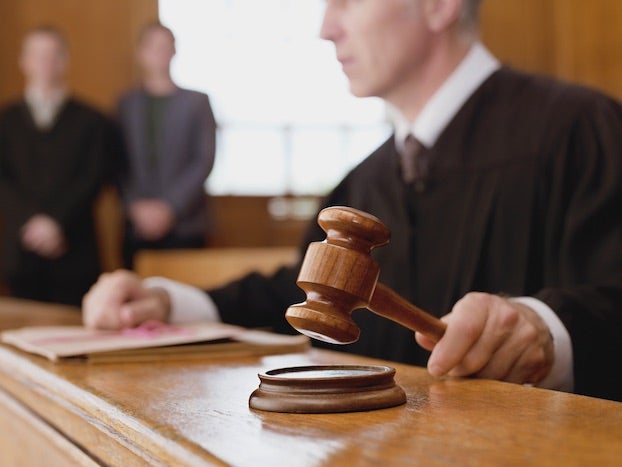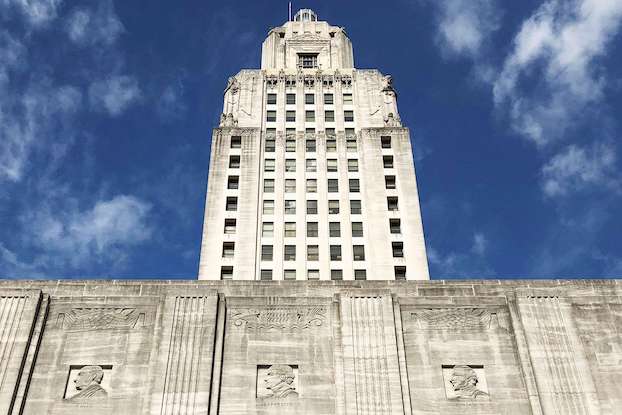Property tax elections opened by high court
Published 7:00 pm Wednesday, January 3, 2018
Editor’s note: Andrew Perzo is on vacation. The following first ran in 2009.
Why is everyone eligible to vote for property tax propositions when it’s only the landowner that will be footing the bill?
State law says tax and bond elections must be open to all voters, regardless of their status as homeowners or renters — many of whom, incidentally, contribute to the payment of landlords’ property taxes through their rent.
The Louisiana Constitution of 1921, the precursor of the state’s current charter, limited voting in tax and bond elections to “property taxpayers.” But a series of U.S. Supreme Court rulings handed down in the late 1960s and early 1970s declared such restrictions unconstitutional.
During the 1973 state constitutional convention, several lawmakers — believing the court would reverse itself — argued for preserving the limitations, which the newly drafted charter transferred into the state’s book of statutes, where they can still be found.
But lawmakers in the late 1970s revamped the voting qualifications, passing laws that superseded the 1921 provisions and opened tax and bond elections to all voters.
‘Benefits and burdens’
In 1969, 1970 and 1971, the U.S. Supreme Court — in four cases, including two originating in Louisiana — ruled that restricting the franchise to property owners or another particular group violates the U.S. Constitution’s equal protection clause.
In Kramer v. Union Free School District No. 15, the court said New York officials couldn’t open a school district election only to property owners, renters of taxable property, and parents or guardians of children.
Later that year, the court ruled in Cipriano v. City of Houma — a case about a utility revenue bond election — that the burden imposed by a general bond issue falls equally on all voters.
“Property owners, like nonproperty owners, use the utilities and pay the rates; however, the impact of the revenue bond issue on them is unconnected to their status as property taxpayers,” reads the court’s ruling.
“Indeed, the benefits and burdens of the bond issue fall indiscriminately on property owner and nonproperty owner alike.”
The court delivered a similar ruling in June 1970 in City of Phoenix v. Kolodziejski, which involved an election on the issuance of general obligation bonds for city improvements.
“The differences between the interests of property owners and the interests of nonproperty owners are not sufficiently substantial to justify excluding the latter from the franchise …,” reads the ruling.
“Property taxes may be paid initially by property owners, but a significant part of the ultimate burden of each year’s tax on rental property will very likely be borne by the tenant, rather than the landlord, since … the landlord will treat the property tax as a business expense, and normally will be able to pass all or a large part of this cost on to the tenants in the form of higher rent.”
General purpose
The U.S. Supreme Court dealt Louisiana law another blow in October 1971 when it struck down a state high court ruling that had narrowly interpreted the federal justices’ earlier decisions and had allowed the Vermilion Parish Police Jury to limit voting in a road district election to property owners.
“The state’s high court interpreted the U.S. Supreme Court’s ruling as having invalidated property ownership as a qualification for voting only in certain cases and said the Vermilion election was not one of those instances,” reads an Associated Press story published Oct. 13, 1971.
“In reversing the state court, the U.S. Supreme Court cited the series of rulings it issued June 23, 1970, banning such ballot restrictions in 11 states, including Louisiana.”
Lake Charles city officials earlier in the year appeared to have anticipated such a ruling in the Vermilion case and — for the first time in city history — opened a tax election to all voters.
“Last year, the U.S. Supreme Court ruled that in elections for the passage of taxes for a general government purpose, all registered voters, whether they own property or not, are entitled to vote,” reads a statement drafted in March 1971 by Mayor James Sudduth and other officials in response to an Informer question.
“After this decision, the Louisiana Supreme Court ruled in a case in Vermilion Parish that a particular road district tax was not for a general government purpose, thus the U.S. Supreme Court ruling did not apply, and only property owners could vote. This case is now being appealed. …
“In the tax election Tuesday, the taxes to be passed are for general governmental purposes, not for a special service district, therefore under the U.S. Supreme Court ruling, the city cannot limit the voting to property owners and all registered voters are entitled to vote.”





